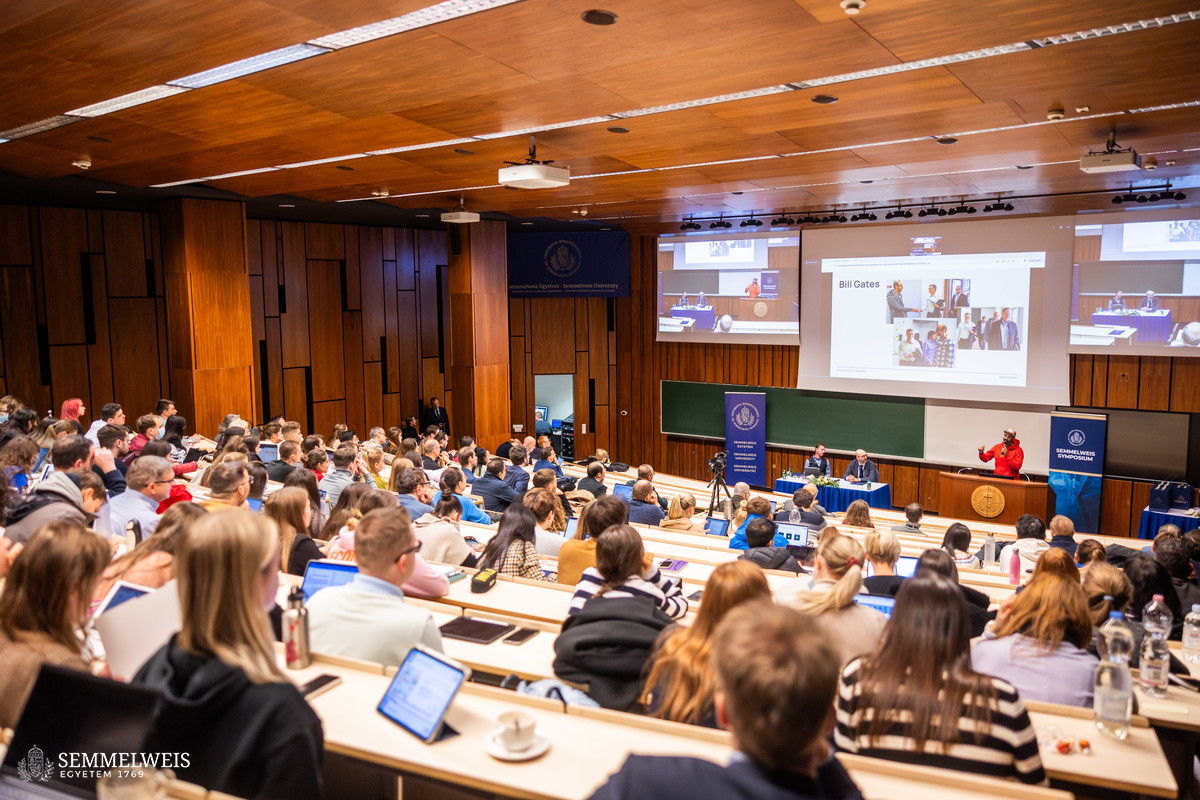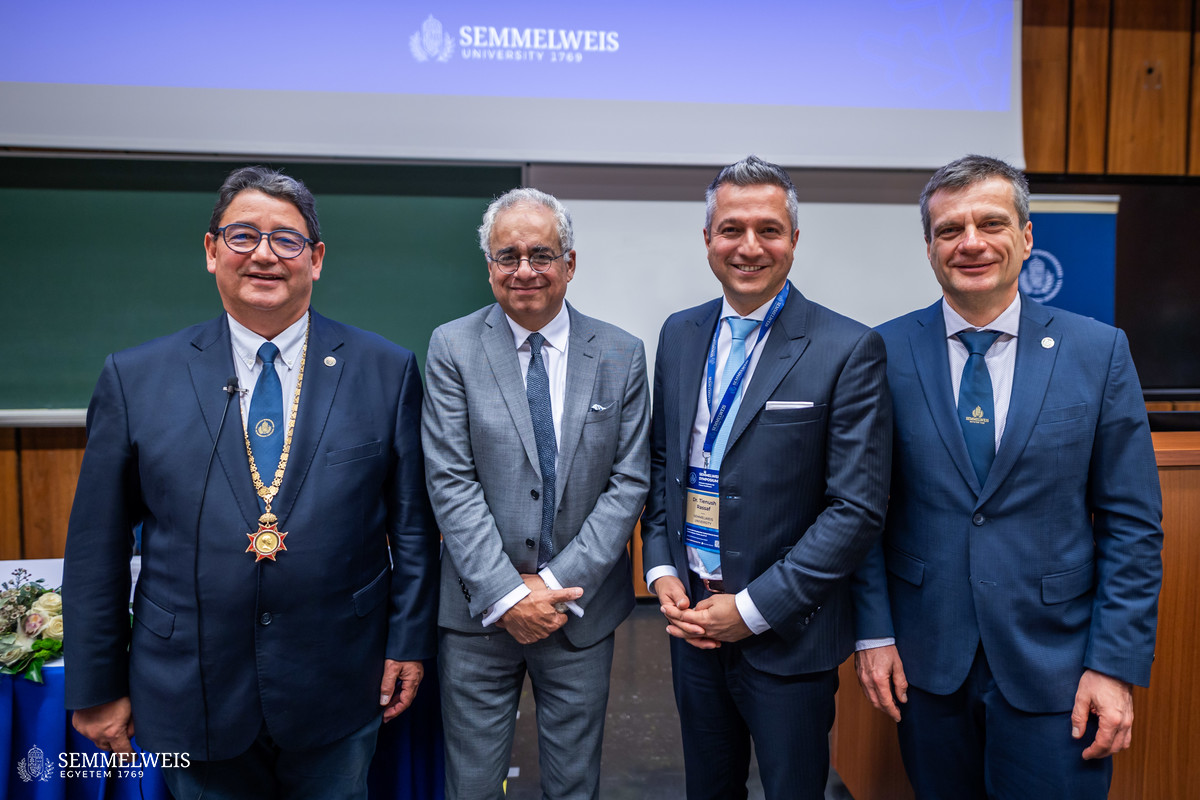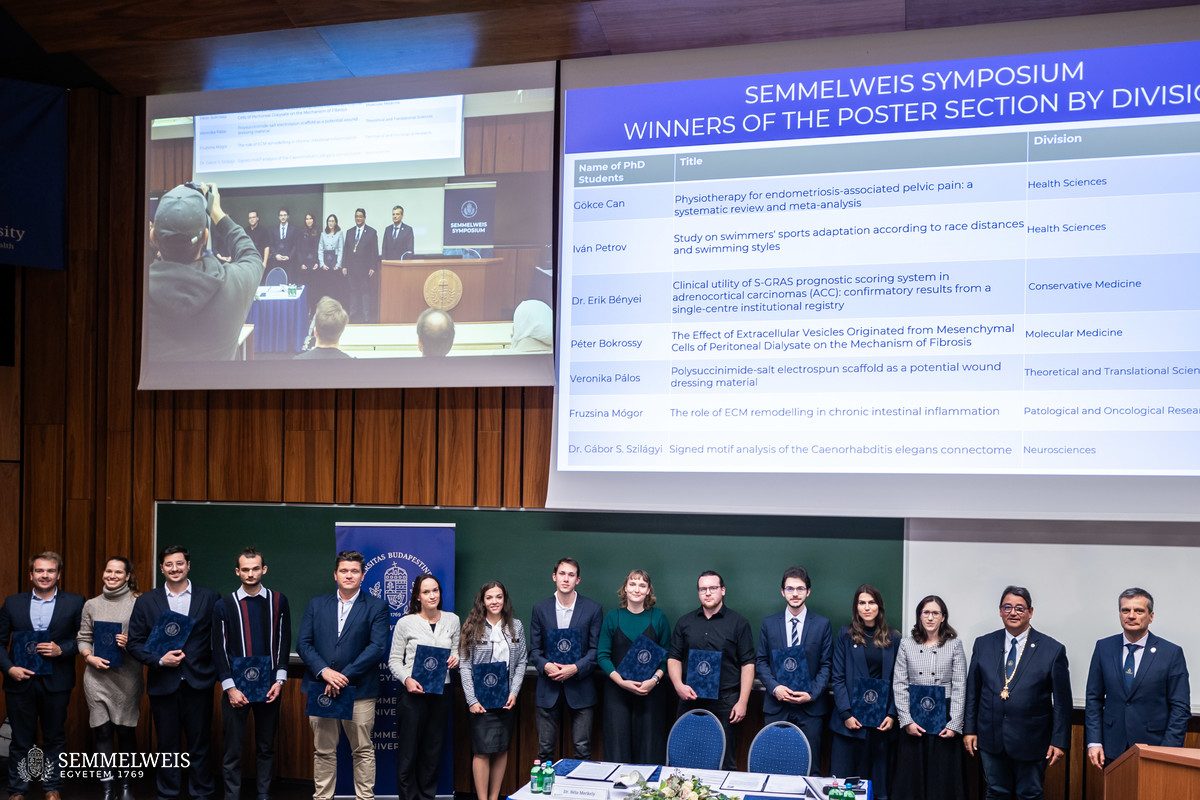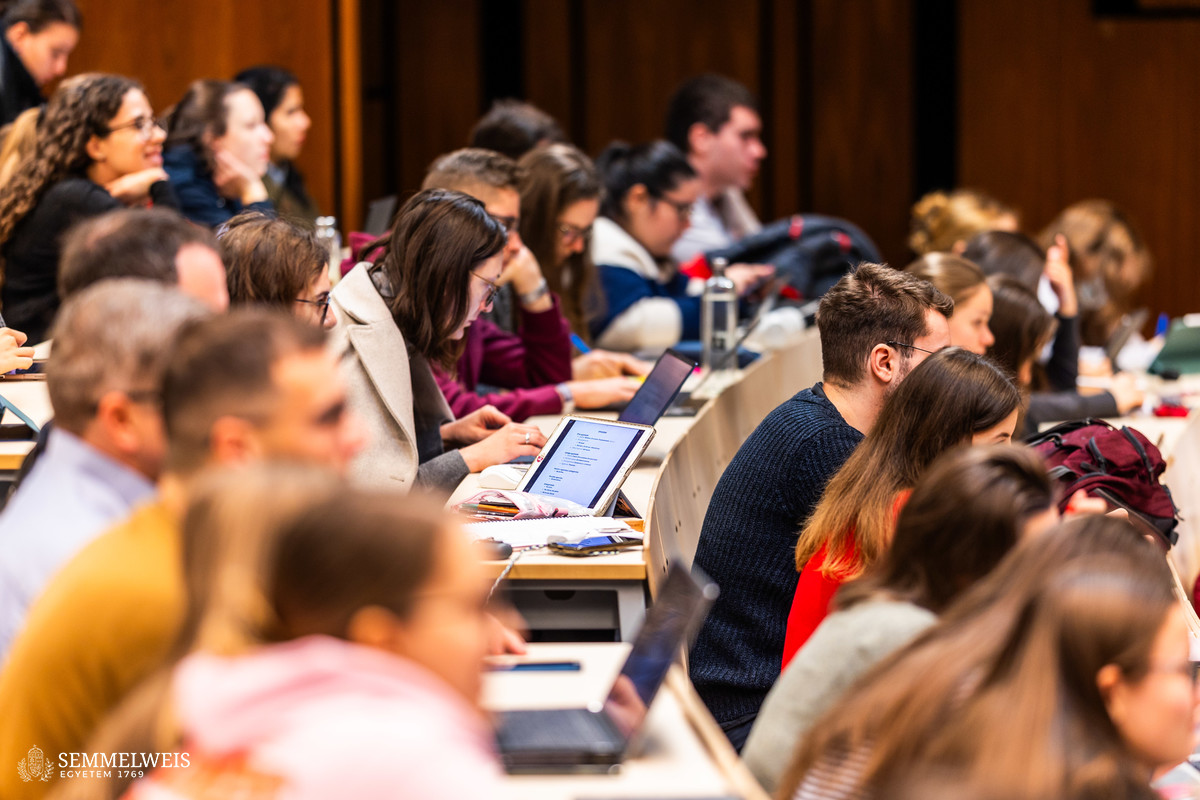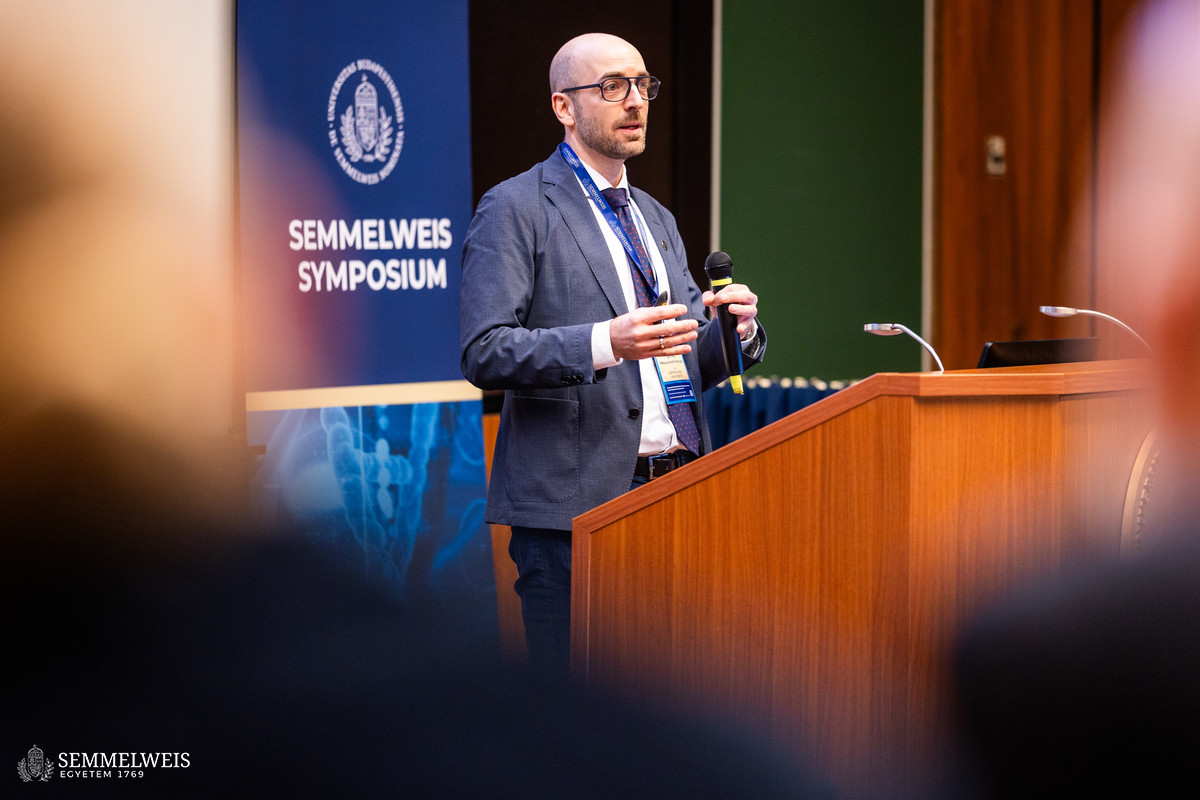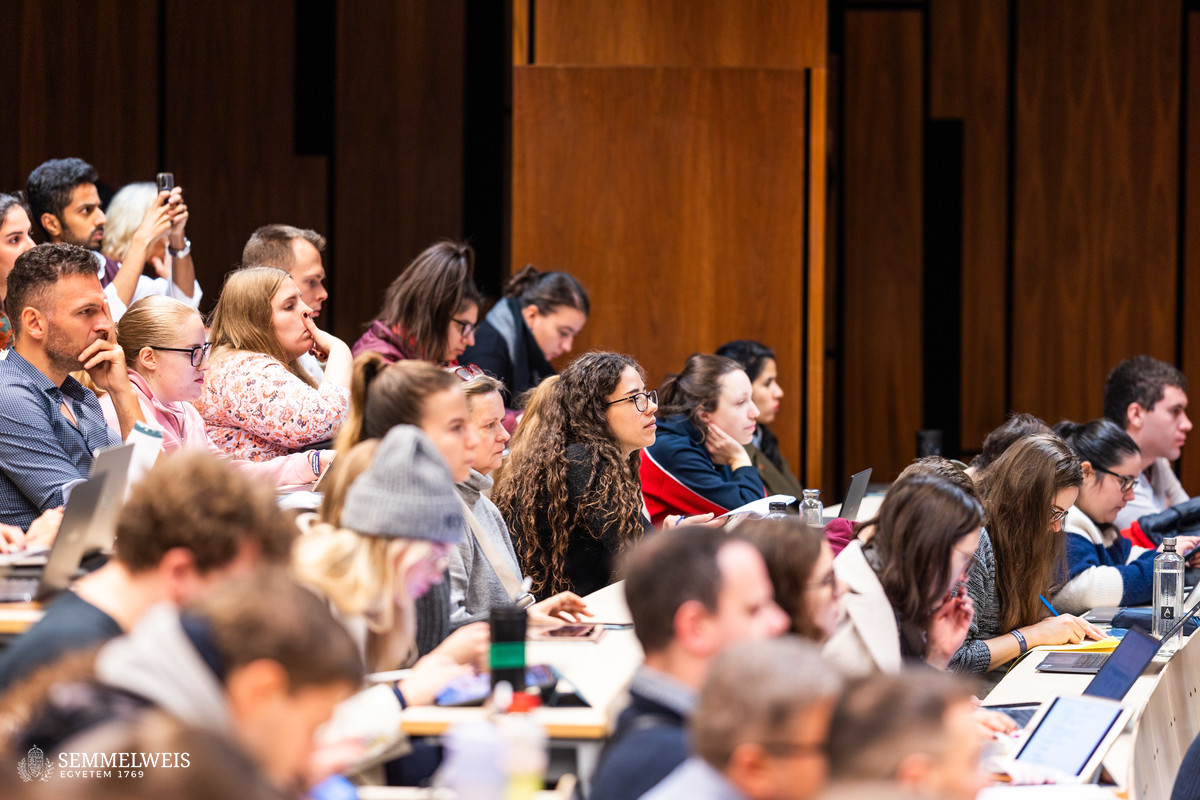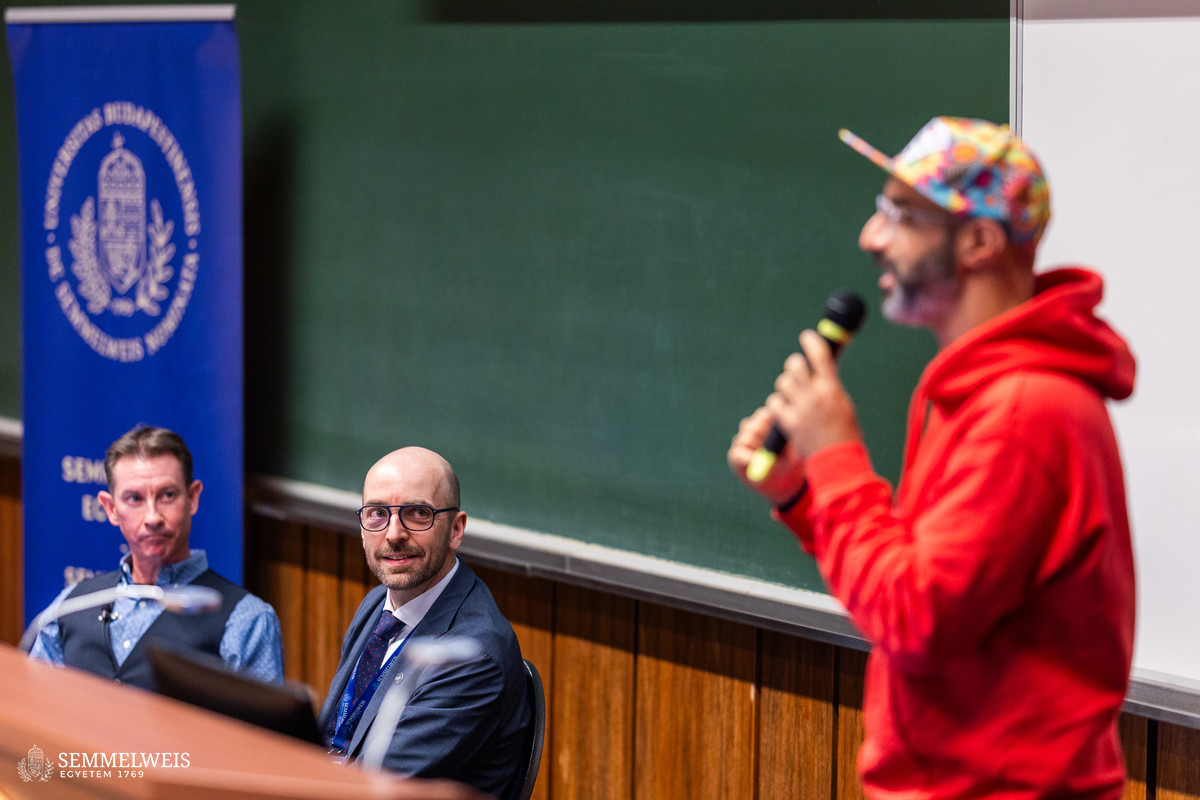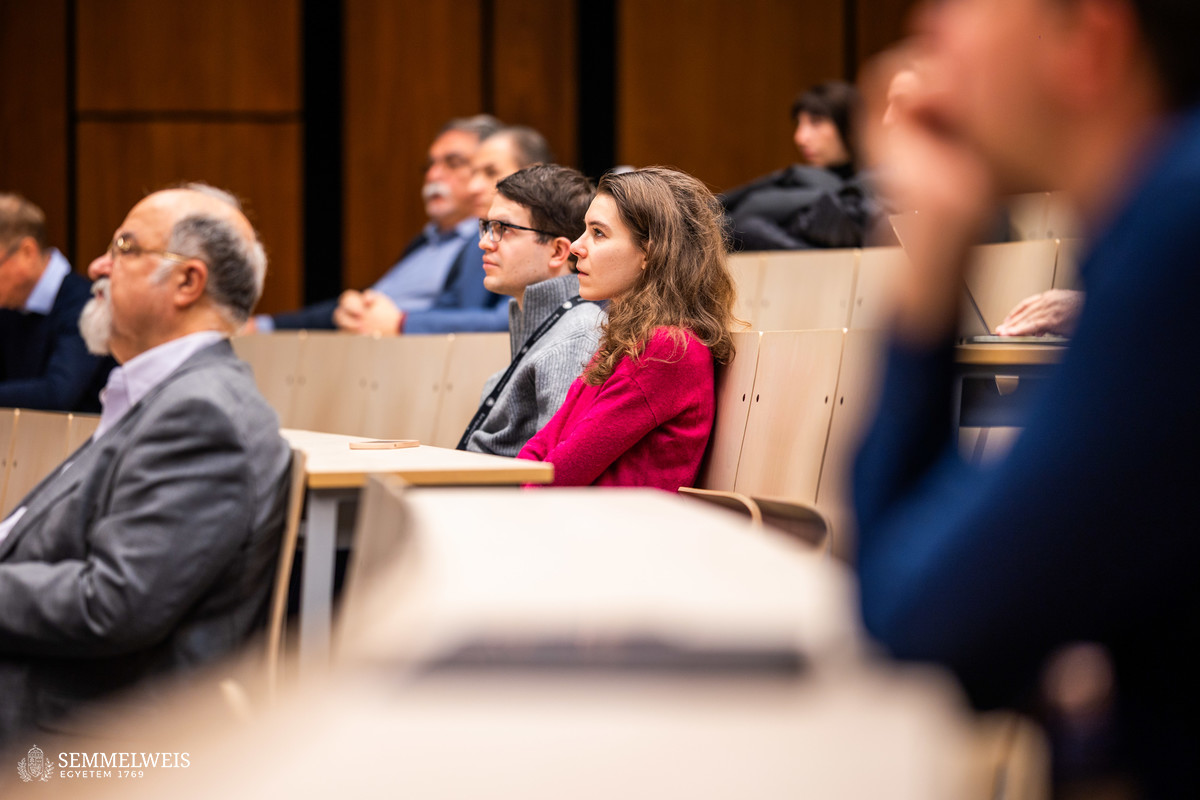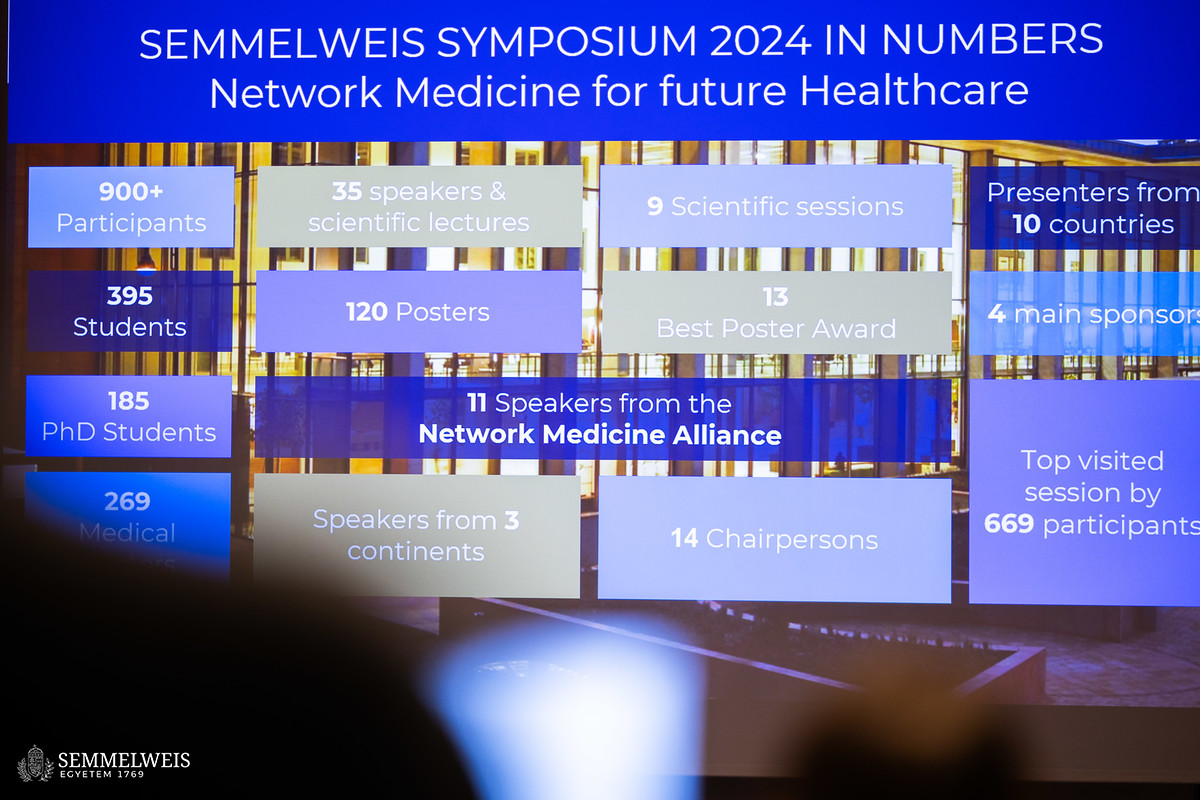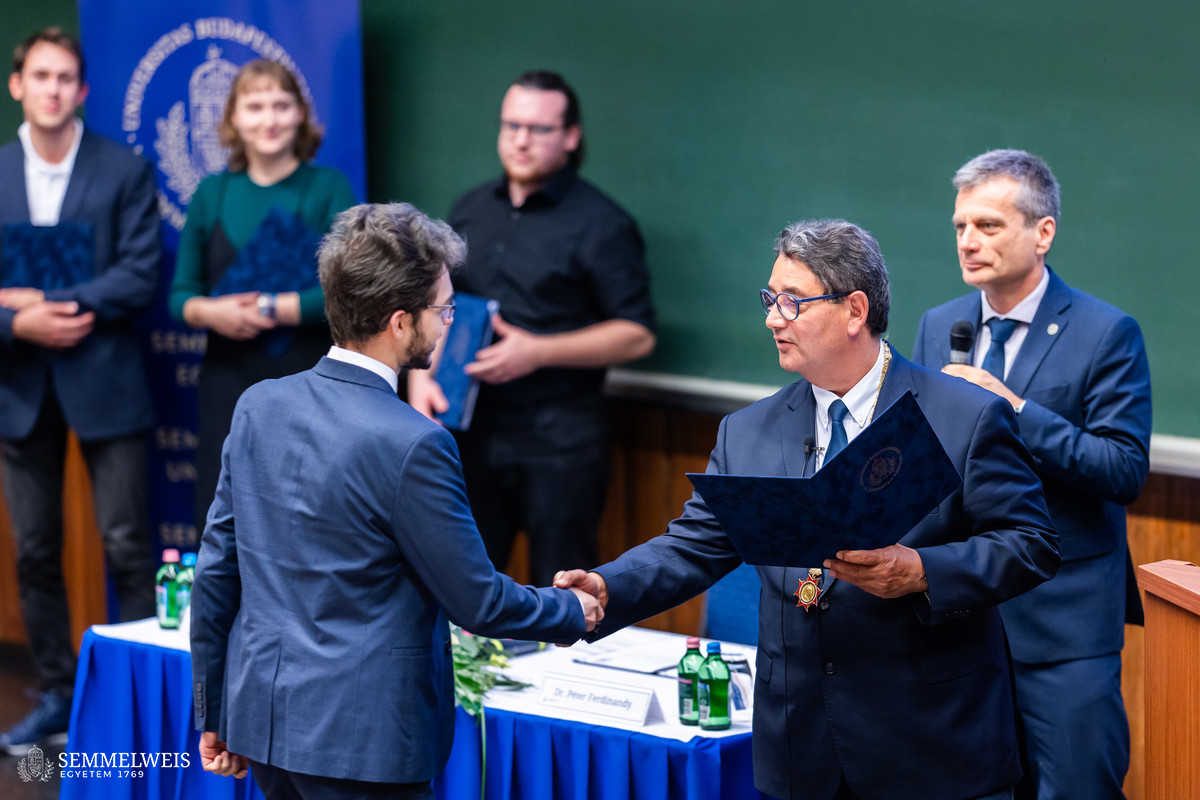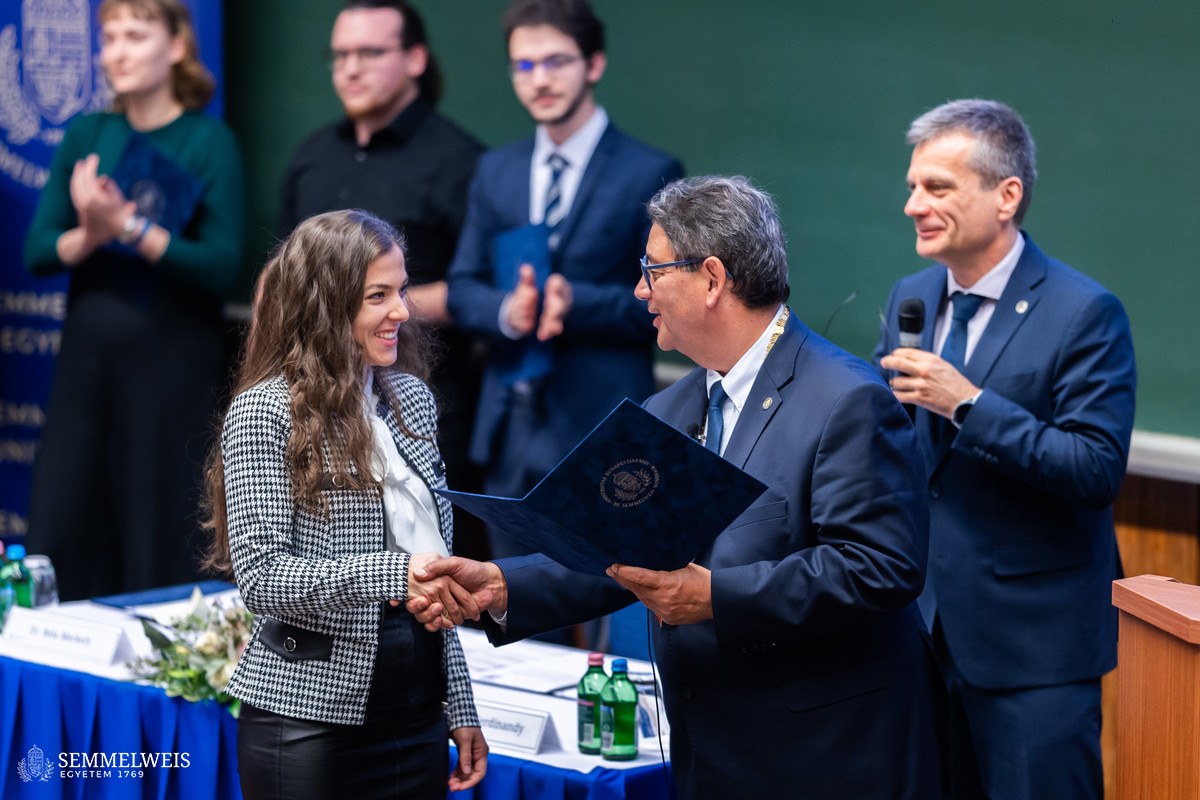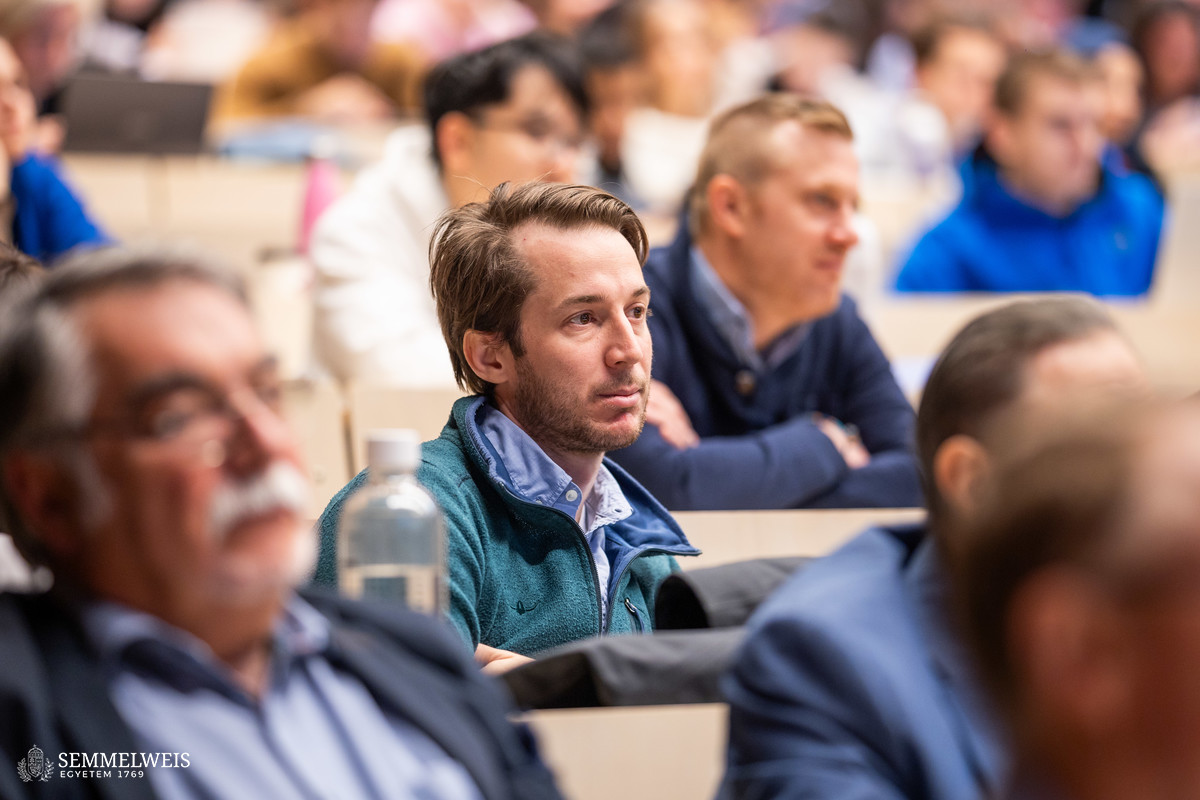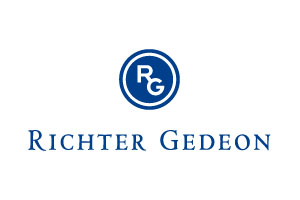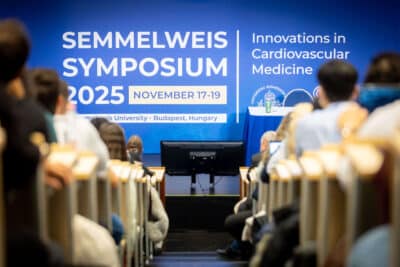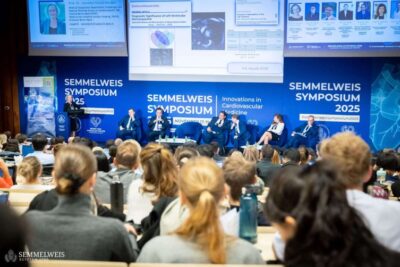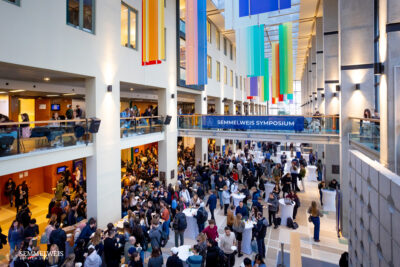The first session of the second day focused on drug development and repurposing. Dr. Harald Schmidt, Professor of Pharmacology at Maastricht University, gave a keynote speech entitled “The End of Medicine as We Know It”. The topic of the second session was multiomic analysis. In his keynote lecture, Dr. Manuel Mayr, Professor for Cardiovascular Proteomics at Imperial College London, spoke about the proteomics landscape of dilated cardiomyopathy. The third session was devoted to clinical phenotyping and its applications. Pulmonologist and genetic epidemiologist Dr. Edwin K. Silverman, Professor of Medicine at Brigham and Women’s Hospital and Harvard Medical School, spoke about how genetics, omics, and networks can be used to investigate chronic obstructive pulmonary disease. The fourth session discussed network medicine in oncology and the role of artificial intelligence (AI) in network medicine. Dr. István Csabai, Professor of Physics at the Faculty of Science of Eötvös Loránd University (ELTE), focused his opening presentation on data-intensive sciences and empowering healthcare with AI.
In the opening session of Day 3, speakers explored the relationship between artificial intelligence and network medicine. Dr. Ijad Madisch, founder and CEO of ResearchGate, a social networking site for researchers and scientists, gave a keynote speech on the origins and challenges behind founding the company, and on how networking in science could drive innovation and collaboration. Reflecting on his journey as a medical and computer science student, he talked about his dissatisfaction with the limitations of traditional academic publishing, which inspired him to create a networked platform for open science to enable knowledge sharing on a global scale.
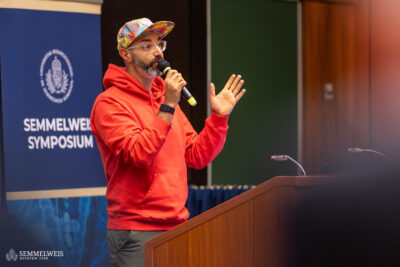 Dr. Ijad Madisch also shared some interesting stories in connection with the founding and funding of ResearchGate. For example, he told the audience how he had managed to meet American businessman Bill Gates, the founder of Microsoft, and how after successful negotiations Gates invested a substantial amount of money in the company, which propelled ResearchGate to new heights. The company later faced legal challenges from the scientific publishing industry, but the lawsuits were eventually settled and the publishers who once opposed the company are now paying to access ResearchGate’s network. Dr. Ijad Madisch also said that initially a professor in Germany had doubted his vision and tried to talk him out of it, but now he was a ResearchGate user himself. To this day, Dr. Ijad Madisch is grateful to the professor because it was this situation that taught him the importance of perseverance and focus:
Dr. Ijad Madisch also shared some interesting stories in connection with the founding and funding of ResearchGate. For example, he told the audience how he had managed to meet American businessman Bill Gates, the founder of Microsoft, and how after successful negotiations Gates invested a substantial amount of money in the company, which propelled ResearchGate to new heights. The company later faced legal challenges from the scientific publishing industry, but the lawsuits were eventually settled and the publishers who once opposed the company are now paying to access ResearchGate’s network. Dr. Ijad Madisch also said that initially a professor in Germany had doubted his vision and tried to talk him out of it, but now he was a ResearchGate user himself. To this day, Dr. Ijad Madisch is grateful to the professor because it was this situation that taught him the importance of perseverance and focus:
What’s the most important thing for your life? I think it’s focus. Make a decision, focus on it. There’s some transition, there’s some period where you have to do two things or three things, but then you have to focus again in order to at least know if it’s working or not, so you don’t make excuses.
The second session was dedicated to bioinformatics methods. Dr. Yang-Yu Liu, Associate Professor of Medicine at Harvard Medical School, spoke about the application of deep learning in microbiome research. In the closing session, Rector Dr. Béla Merkely’s welcome speech was followed by the presentations of two Doctor Honoris Causa award winners, Dr. Ajay K. Singh and Dr. Tienush Rassaf. Afterwards, the Semmelweis Best Poster Award ceremony took place and, finally, Dr. Péter Ferdinandy, Vice-Rector for Science and Innovations, summarized the significance of this year’s Semmelweis Symposium.
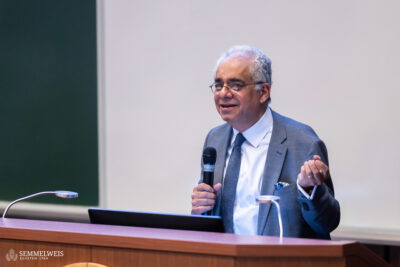 Dr. Ajay K. Singh, Senior Associate Dean for Postgraduate Medical Education at Harvard Medical School, spoke about how AI is transforming healthcare and medical education, particularly in areas such as diagnostics, imaging, and personalized medicine. In the context of the close partnership between Harvard Medical School and Semmelweis University, he stressed the importance of global collaboration in advancing the medical applications of AI. Discussing recent breakthroughs achieved with the help of AI, he mentioned, among others, the technology used by Google DeepMind to predict the structure of proteins, but also spoke about predicting cardiac conditions through ECG/EKG analysis, enhancing robotic surgery precision, pathologic standardization, and aiding drug discovery. He also addressed AI’s role in reshaping education and job structures, highlighting the shift toward critical thinking and a need for digital literacy in medical curricula. Finally, he stressed that the integration of AI across healthcare promises greater efficiency and improved patient care.
Dr. Ajay K. Singh, Senior Associate Dean for Postgraduate Medical Education at Harvard Medical School, spoke about how AI is transforming healthcare and medical education, particularly in areas such as diagnostics, imaging, and personalized medicine. In the context of the close partnership between Harvard Medical School and Semmelweis University, he stressed the importance of global collaboration in advancing the medical applications of AI. Discussing recent breakthroughs achieved with the help of AI, he mentioned, among others, the technology used by Google DeepMind to predict the structure of proteins, but also spoke about predicting cardiac conditions through ECG/EKG analysis, enhancing robotic surgery precision, pathologic standardization, and aiding drug discovery. He also addressed AI’s role in reshaping education and job structures, highlighting the shift toward critical thinking and a need for digital literacy in medical curricula. Finally, he stressed that the integration of AI across healthcare promises greater efficiency and improved patient care.
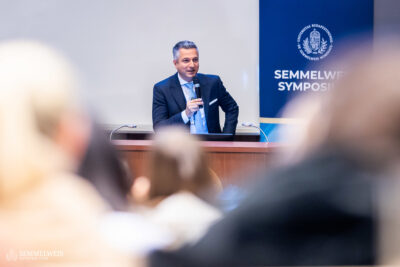 Dr. Tienush Rassaf, Director of the Clinic for Cardiology and Vascular Medicine at the University of Essen, spoke about the development of cardiology and the challenges of the field. He highlighted the dramatic evolution of myocardial infarction treatment, from minimal intervention to today’s complex, life-saving therapies, but noted that mortality and hospitalizations for heart failure remained high. He emphasized the need for new therapeutic strategies and presented a pioneering initiative at the University Hospital Essen, focused on cellular mechanisms and translational studies to advance myocardial protection. His team’s research includes developing peptides that protect heart cells by targeting mitochondrial pathways. He also addressed the impact of an aging population and patient self-diagnosis, stressing that cardiology must evolve to meet these demands. He described the role of AI in cardiology, citing examples of ECG/EKG-based algorithms that outperform specialists in diagnosing arrhythmias and predicting heart failure. He shared his team’s work on digitizing patient data for predictive analysis, with the aim of making cardiovascular risk assessments accessible via smartphones within a few years.
Dr. Tienush Rassaf, Director of the Clinic for Cardiology and Vascular Medicine at the University of Essen, spoke about the development of cardiology and the challenges of the field. He highlighted the dramatic evolution of myocardial infarction treatment, from minimal intervention to today’s complex, life-saving therapies, but noted that mortality and hospitalizations for heart failure remained high. He emphasized the need for new therapeutic strategies and presented a pioneering initiative at the University Hospital Essen, focused on cellular mechanisms and translational studies to advance myocardial protection. His team’s research includes developing peptides that protect heart cells by targeting mitochondrial pathways. He also addressed the impact of an aging population and patient self-diagnosis, stressing that cardiology must evolve to meet these demands. He described the role of AI in cardiology, citing examples of ECG/EKG-based algorithms that outperform specialists in diagnosing arrhythmias and predicting heart failure. He shared his team’s work on digitizing patient data for predictive analysis, with the aim of making cardiovascular risk assessments accessible via smartphones within a few years.
More than 900 participants attended this year’s Semmelweis Symposium, including 395 undergraduate and 185 PhD students. There were 35 speakers from 10 countries and three continents, 11 of them representing universities that are members of the Network Medicine Alliance. A poster competition was organized as part of the symposium, with 120 poster abstracts submitted to the organizers and exhibited simultaneously with the event. Entries were competing in 10 sections in the following disciplines: cardiovascular sciences, pharmaceutical sciences, dental research, mental health, health sciences, conservative medicine, molecular medicine, theoretical and translational sciences, pathological and oncological research, neurosciences.
Cardiovascular Sciences
Karolina Katarzyna Kolodziejska
Interaction of dapagliflozin and exercise in a small animal model of athlete’s heart
Pharmaceutical Sciences
Olivér Márton Balogh
Towards machine-assisted pharmacovigilance: using contrastive learning to generate vector representations of adverse events from spontaneous reports
Dr. Gábor Filipszky
Innovative pharmaceutical use of isomalt
Áron Márk Csernák
Towards Machine-Assisted Pharmacovigilance: Interpreting Adverse Event Embeddings from Clinical and Data Science Perspectives
Dental Research
Dr. Lilien Nagy
Evaluation of flexural strength and antifungal characteristics of polymethyl methacrylate incorporated with silver nanoparticles
Dr. Kata Sára Haba
Nanomechanical and Optical Properties of Human Dental Collagen in Type 2 Diabetes Mellitus
Mental Health
Ágota Vass
Transdiagnostic EEG Microstate Analysis in Schizophrenia and Autism Spectrum Disorder
Health Sciences
Gökce Can
Physiotherapy for endometriosis-associated pelvic pain: a systematic review and meta-analysis
Iván Petrov
Study on swimmers’ sports adaptation according to race distances and swimming styles
Conservative Medicine
Dr. Erik Bényei
Clinical utility of S-GRAS prognostic scoring system in adrenocortical carcinomas (ACC): confirmatory results from a single-centre institutional registry
Molecular Medicine
Péter Bokrossy
The Effect of Extracellular Vesicles Originated from Mesenchymal Cells of Peritoneal Dialysate on the Mechanism of Fibrosis
Theoretical and Translational Sciences
Veronika Pálos
Polysuccinimide-salt electrospun scaffold as a potential wound dressing material
Pathological and Oncological Research
Fruzsina Mógor
The role of ECM remodelling in chronic intestinal inflammation
Neurosciences
Dr. Gábor S. Szilágyi
Signed motif analysis of the Caenorhabditis elegans connectome
Dr. Balázs Csizmadia
Photos by Bálint Barta – Semmelweis University
Sponsor:
